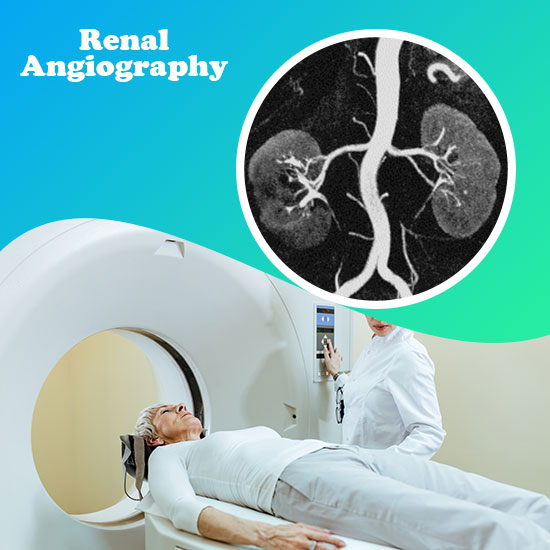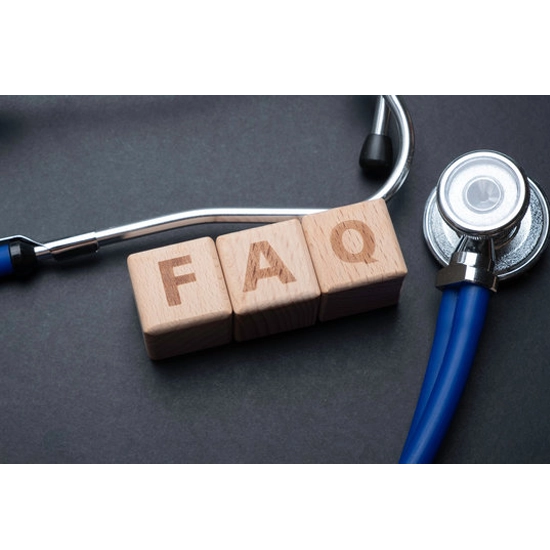
Book MRI Renal Angiography Appointment Online Near me at the best price in Delhi/NCR from Ganesh Diagnostic. NABL & NABH Accredited Diagnostic centre and Pathology lab in Delhi offering a wide range of Radiology & Pathology tests. Get Free Ambulance & Free Home Sample collection. 24X7 Hour Open. Call Now at 011-47-444-444 to Book your MRI Renal Angiography at 50% Discount.
Renal Magnetic Resonance Angiography (MRA) is a non-invasive diagnostic test that is used to examine the blood vessels of the kidneys.MRA kidney uses a strong magnetic field, radio waves and a computer to evaluate the kidney and its arteries.
This imaging test helps to analyse the situation of blood vessels in the kidneys. Ganesh Diagnostic offers MRI with advanced technology 3.0 Tesla in Delhi, one of the best diagnostic centres in Delhi. Book MRI renal angiography at lowest price.
High quality, Affordable price and No wait time.
MRA of the kidney used to detect the blood vessels and help in the identification of abnormalities.
Doctors may advise MRI renal angiography to detect renal vascular malformation, stenosis, aneurysm, spasm of blood vessels, blood clots, blockage, tumours and look for bleeding from the blood vessels of the kidney.
Also detect Hypertensive kidney disease and fibromuscular dysplasia.
Usually, this examination is conducted in a diagnostic centre.
You will be positioned on the movable exam table by the technologist. Technologists may advise you to stay stable during the examination and guide you during examination. The technologist may position equipment near or around the body part being examined that has coils that can transmit and receive radio waves.
Multiple runs, or sequences, are typically included in MRI exams; some runs may extend for several minutes. Every run will produce a unique set of sounds.
An intravenous catheter (IV line) will be inserted into a vein in your hand or arm by a physician, nurse, or technologist if a contrast material is used during your exam. This IV will be used to administer the contrast agent.
When the examination is finished, the technologist will remove your IV line and cover the insertion site with a small dressing.
Complete procedure may take 60 minutes.
No special care is needed. Following a scan, patients might have to watch for a few hours.
Sometimes IV injections of contrast agents are given before taking pictures. After inserting the IV needle, you may experience discomfort and possibly sustain bruises. Furthermore, the likelihood of skin irritation at the site of IV tube insertion is extremely low. Some patients may experience a metallic aftertaste after receiving the contrast injection.
If sedation is not necessary, there is no need for a recovery period. You can immediately return to your normal schedule and diet after the exam. Adverse reactions to the contrast agent are extremely rare, occurring in a tiny percentage of patients. These might include pain at the injection site, nausea, and headaches.
Renal Angiography requires meticulous care. Therefore, you are suggested to get the test done only at the certified diagnostic centre. However, cost may vary to some extent as per the location or facilities given.MRI Renal Angiography with contrast price in Delhi may vary due to the scan equipment setup cost incurred for the MRI scan centres. Get up to 50% off on MRA brain with contrast in the best diagnostic centre like Ganesh Diagnostic.
To provide hassle-free diagnostic service we also provide online service to book your appointment. At Ganesh Diagnostic, you can book an MRI Renal Angiography test online by scheduling your appointment. Quick, non-invasive MRI appointments are available for detailed insights into your body. Schedule now for a comprehensive health assessment. We are 24/7 Available at your service.
| Test Type | MRI Renal Angiography |
| Includes | MRI Renal Angiography (MRI Scans) |
| Preparation |
|
| Reporting | Within 4-6 hours* |
| Test Price |
₹ 8000
|

Early check ups are always better than delayed ones. Safety, precaution & care is depicted from the several health checkups. Here, we present simple & comprehensive health packages for any kind of testing to ensure the early prescribed treatment to safeguard your health.